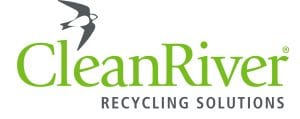The hidden battle over bottle bill legislation resumes each winter like some ancient tribal ritual. Your recycling goals, and those of the place you live, can be made or broken by 5 or 10 cent deposit on the bottles and cans in the hands your co-workers, clients, building occupants and guests. Like the White Walkers of Game of Thrones, the outcome of The Invisible War poses a danger, which few appreciate.
by CJ May
In 1990 I didn’t know The Invisible War existed and I didn’t care. As a new recycling professional and a big fan of “just put it in the bin” recycling, I wasn’t enthusiastic about Connecticut’s deposit law. Our “bottle bill” was passed in the 1970s as an anti-littering initiative. It now seemed useless and out-of-date for a state that had mandatory recycling at curbside and in businesses, public venues and institutions. It required residents to collect and return soda and beer cans and bottles just to get back the nickel deposit. The bottle bill seemed inefficient. But it is effective, here are the stats:
- States which do not have deposits on cans and bottles only see a recycling/recovery rate for these items in the 30 percent range. For states with a deposit on cans and for states with a deposit on cans and bottles there is a recovery rate in the 60 percent range.
- Gathering together and returning these beverage containers can seem time-consuming for homeowners as I can certainly attest. But the beauty of bottle bills is the magic they work away from home.
Bottle Bills Boost Recovery Rates in the Vital “Away from Home” Sector
Parks, streets, sporting venues and other locations, which may have a scanty provision of recycling bins—or chaotic activity that makes recycling a challenge—are the battlefields where bottle bills prove their worth. Residents from the homeless to custodians, to the low income to the boy scouts recover used beverage containers because of the monetary incentive. In a world where aluminum, plastic and glass are underpriced resources, bottle bill legislation makes them valuable to the people on the ground.
How Bottle Bills Directly Impact Your Recycling Program
If you manage a recycling program, the existence or lack of a bottle bill affects your operation. In Connecticut and other states with container deposits, you’ll find containers that are tossed into the trash will be recovered by someone looking for the 5 or 10 cent deposit. In terms of calculating your recycling rate, it lowers your trash but cannot easily be added on to the recycling side of the equation.
Estimating the amount of beverage containers, which get scavenged, is notoriously difficult. If you are in one of the 40 or so states which do not have a bottle bill then recycling is entirely on you and your fellow recycling operations staff. Since no one will rescue cans and bottles dropped on the ground or tossed into the trash, you need to make recycling extremely easy and convenient to maximize your recovery.
But What of The Invisible War?
It is a war fought every year in the legislatures of states nationwide. In states with bottles bills on the books, advocates push to expand them. Connecticut may expand its bottle bill to increase handling fees for processors, deposits from 5 to 10 cents, and add new items to the list of deposit items, which already includes beer, soda and water. Connecticut might also lose its bottle bill if detractors have their way and convince legislators that it should be repealed. The strategies, tactics, politics and money in The Invisible War are extreme and different in every state. For more information, albeit from a decidedly pro-bottle bill source, visit the Container Recycling Institute.
And by the way, I am now decidedly pro bottle bill. It is one of the most powerful ways to ensure we are not wasting our future one can and bottle at a time.
CJ May served as Yale University’s recycling coordinator for more than 20 years. He currently works as recycling coordinator for the City of Waterbury where he combines his work as an environmental magician and sustainability presenter to enchant 32,000 households with the magic of recycling. CJ can be reached at [email protected].
CleanRiver Recycling Solutions is the visionary partner that provides future-ready recycling programs that work because they are committed to the journey, enabling a long-term positive impact on the environment. CleanRiver has moved beyond the familiar ‘reduce, reuse, recycle’ towards a more environmentally sustainable approach called the 3C’s of recycling: Culture, Communication and Collection. Their innovative, flexible and customizable recycling products are constantly evolving with the industry to meet any environmental and legislative changes. Their bins are made from the highest possible recycled content (97% Recycled HDPE) and are specifically customized to collect and divert waste for any business, recreational or residential setting. The expertise gained from over 28 years of experience is CleanRiver Recycling Solutions’ most valuable product and they will excite you with their passion about making the planet a more sustainable place together. As partners CleanRiver Recycling Solutions will work with you to ensure your recycling program is a success. For more information, visit www.cleanriver.com.

